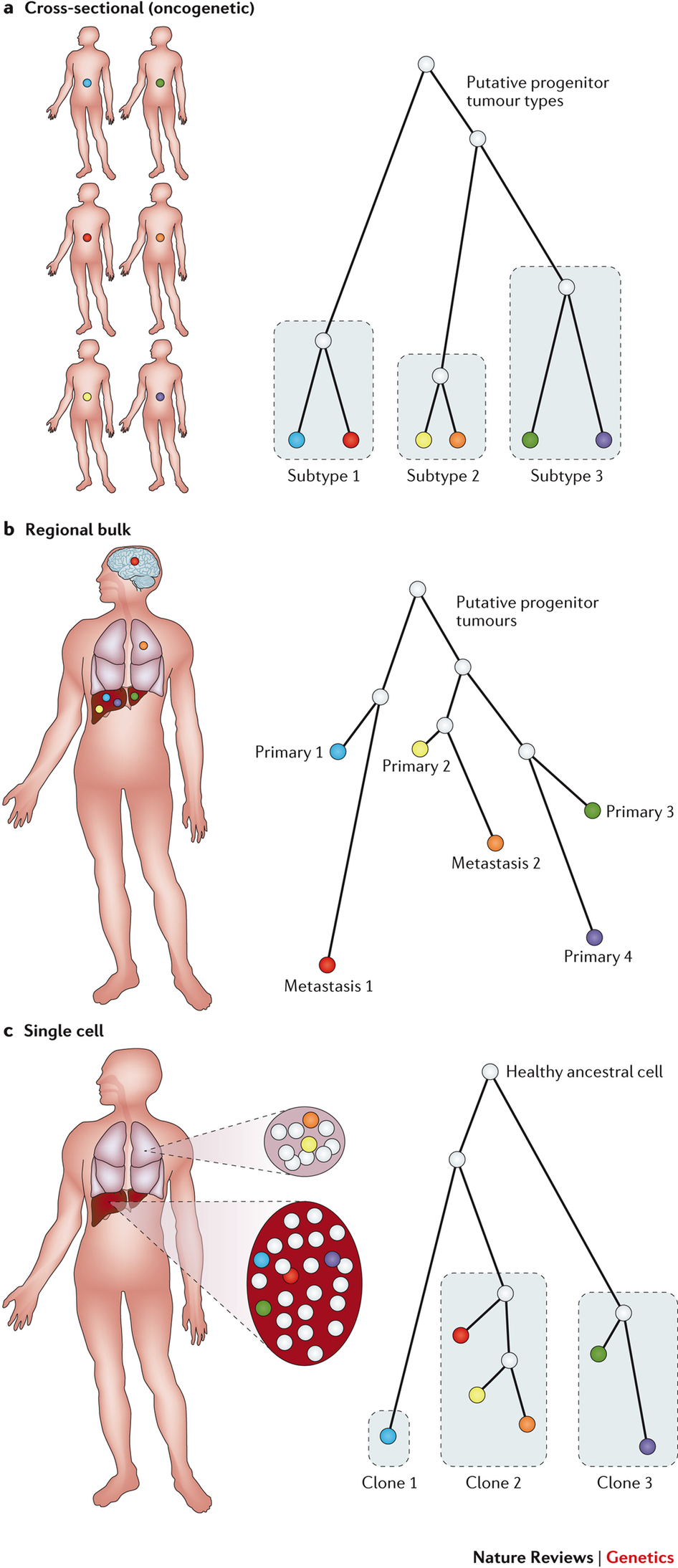Tracing the Evolutionary History of Cancers

Russell Schwartz, Professor of Biological Sciences, with co-author Alejandro A. Schäffer, of the U.S. National Institutes of Health's National Center for Biotechnology Information (NCBI), have recently published "The evolution of tumour phylogenetics: principles and practice1," a review of the use of phylogenetics (evolutionary tree inference) to study tumor development.
The paper surveys the rapidly growing field of tumor phylogenetics, which is based on the idea of using evolutionary theory to make sense of the complexity of cancer genomics. While it has long been recognized that cancer is largely a disease governed by evolutionary principles, it is only recently that analysis methods based on evolutionary models have come into widespread use in interpreting cancer genomic data. Such methods meet a need for making sense of the enormous complexity of tumor genomic data, which is often drastically altered relative to healthy cells, in order to understand how cancers develop and aid in the search for better diagnostics and therapeutics.
In this paper, Schwartz and Schäffer seek to bring some order to the many approaches recently developed for applying phylogenetics to tumor development with the goal of providing practical guidance to those seeking to work in or understand this field. They provide a classification of many of the available methods and the numerous studies that have applied them, seeking to draw some general conclusions about the range of methods available and the circumstances in which each is appropriate.
They further provide guidance into the reasoning that goes into designing a successful phylogenetic study in cancer, with the goal of making a complicated field more accessible, particularly to biological researchers with minimal training in computational biology. The hope is that this paper can serve as a guidebook for researchers on methods and how to select them, as well as providing some thoughts about future directions of this important and still growing field.
1. Schwartz R, Schäffer AA. The evolution of tumour phylogenetics: principles and practice. Nat Rev Genet. 2017 Feb 13. doi: 10.1038/nrg.2016.170.
